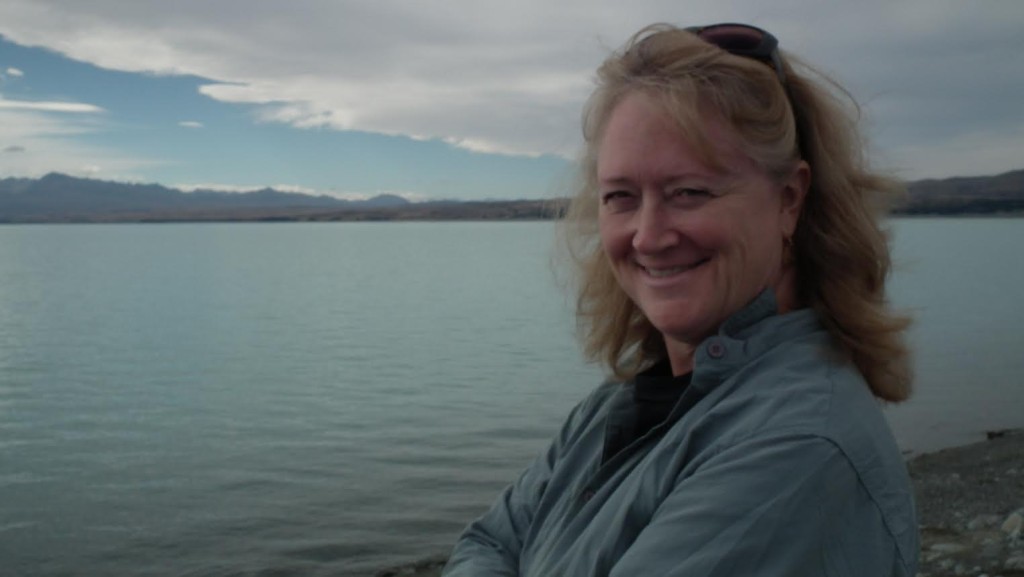Podcast: Play in new window | Download
Subscribe: Apple Podcasts | RSS
Dr. Susan Krumdieck is a Professor in Mechanical Engineering and Director of the Advanced Energy and Material Systems Lab at the University of Canterbury. She is also Research Leader with the Geothermal Energy Conversion Research Group, Founder of the Global Association for Transition Engineering, and Director of the From the Ground Up Research Consortium. She received her B.S. and M.S. Degrees in Mechanical Engineering and Energy Systems Engineering from Arizona State University and her Ph.D. in Mechanical Engineering from the University of Colorado, Boulder. Susan is the recipient of the Gold and Silver Sustainability Awards from the University of Canterbury, as well as a Member of the Royal Society of New Zealand and former Member of the Royal Society of New Zealand President’s Energy Panel. Susan is with us today to tell us all about her journey through life and science.
People Behind the Science Podcast Show Notes
Life Outside of Science (02:15)
Susan spends a great deal of her free time gardening, including growing vegetables. She is also an active cyclist and a member of a choir that sings music that is hundreds of years old.
The Scientific Side (03:30)
She is an engineer, and her goal is to observe the world, learn about it, improve it, and ultimately make things work. A focus for Susan is re-thinking and re-engineering things we have created in order to address future energy and societal needs (Transition Engineering). She also does work in materials engineering, and her lab creates new materials to address particular problems in energy and other areas.
A Dose of Motivation (05:20)
“The only thing that we know works for sure is to stop doing what doesn’t work.”
What Got You Hooked on Science? (09:21)
Her father was a high school science teacher, and she grew up in a rural area of Colorado, surrounded by archaeology. Susan initially planned to become an archaeologist to understand the great mysteries of past civilizations. However, in the 70s when the energy crisis hit in the U.S., she was struck by how much better people in rural areas like hers adjusted to scarcity compared to people in big cities. This sparked her interest in energy systems. Based on her interest in energy and excellent math skills, a high school teacher guided her to pursue engineering.
The Low Points: Failures and Challenges (23:20)
One frustration for Susan is that, though a number of her projects have worked spectacularly in the lab, they were never widely adopted. Her group developed a bio ceramic material that can be used to coat metal implants like hips or elbows. Because this is the same material that is used to make the hard parts of your bones, your body will heal up to the material, rather than away from it. From an engineering perspective, the material was perfect. However, there were still many hurdles for this kind of medical application, including animal model work and clinical trials that her lab was not really prepared for.
A Shining Success! (27:25)
Developing the field of Transition Engineering, which involves engineering for the future, has been a big success for Susan. She has really enjoyed thinking about how the things we do right now can change the future, and it has been rewarding to teach others how to think this way as well.
Book Recommendations (36:09)
A Midwife’s Tale: The Life of Martha Ballard by Laurel Thatcher Ulrich
Most Treasured Travel (39:16)
A very memorable travel experience for Susan was visiting the island of Rotuma in Fiji with one of her PhD students. They planned a visit in response to an email from a young girl who asked Susan how to use coconuts to make diesel fuel. They were able to work with the local people to assess the link between the costs and benefits to their society of different levels of energy technology development. It turned out that converting coconuts to diesel was not the ideal solution in this case.
Quirky Traditions and Funny Memories (43:13)
As part of her job, Susan gets to work with remarkable young people from all over the world. She has enjoyed taking groups of her students on trips to the mountains. For some of her students, this is the first time that they have ever really experienced the wonders of nature like walking on dirt and seeing the stars at night.
Advice For Us All (50:46)
Do what you want to do.
Guest Bio
Susan has been at Canterbury University since 2000. Her research focuses on developing the engineering methods and innovative technologies for adaptation to reduced fossil fuel production and consumption. She is an expert in developing new ideas for dealing with oil supply issues in transportation systems and urban planning. She is the leader of a group of engineering professionals and academics working to establish the Global Association for Transition Engineering (GATE). Transition Engineering is an emerging field that works on fossil fuel reduction change projects for industry and the public sector. She was appointed to the RSNZ Energy Panel in 2005, was selected as the IET prestige lecturer in 2010, and won the CU Gold Sustainability Award in 2011 for organizing Signs of Change, the first national no-travel conference, and Silver Sustainability award in 2013 for her work on From the Ground Up, an urban re-development approach. She has worked with Professor Frank Kreith on the first energy engineering text with coverage of Transition Engineering. Susan has published over 115 peer-reviewed papers, supervised a total of 15 PhD student completions, and been awarded over $5M in research grants as principal investigator.

Leave a Reply